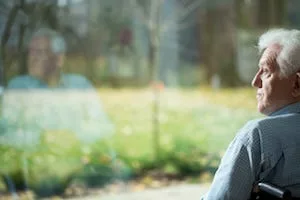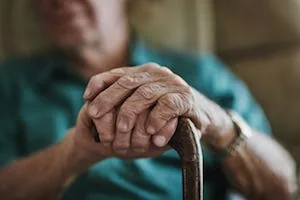Causes & Types of Neglect
What are the Causes of Nursing Home Abuse or Neglect?
The reasons why nursing home abuse occurs are many and varied; however, the majority of abuse happens for the following reasons:
- The elderly population is increasing and the capacity and capability of care centers have not kept pace.
- There are not enough nursing home beds to serve the entire elderly population, which results in overcrowding.
- 80% of nursing homes do not have enough staff to provide adequate care, leading to overworked staff and neglected patients.
- One nurse’s aide may be responsible for the care of 30 patients.
- Managers hire incompetent personnel.
- Employees are improperly trained.
- 92% of nursing homes employ at least one convicted criminal.
- Nursing homes fail to monitor nursing home conditions and personnel.
- Only 7% of full time employees at nursing homes are registered nurses.
- Very few nursing homes have an RN on duty 24 hours a day.
- Wages for nursing assistants and orderlies are low, typically not much more than minimum wage, making it hard to attract top employees.
- Working daily with the elderly is very difficult, physically and mentally.
- More than 50% of patients do not have a close relative to check up on them and make sure they are fine.
- Over 65% of residents have some sort of impairment that affects daily activities such as washing, dressing, eating or walking.
- Many residents have some level of cognitive impairment as well: 42% mild, 27% medium, 31% severe.
As you can see, the conditions in the nursing home care industry make it ripe for abuse. Overworked, underpaid, improperly trained and unsupervised employees, working with elderly patients unable to care for themselves, results in frequent cases of abuse. Our loved ones deserve better.
What are the Different Types of Elder Abuse and Neglect?
Unfortunately, the dependent condition of most nursing home residents makes them especially vulnerable to all types of abuse, physical violence and neglect. Of the abuse reported in nursing homes, 29% is physical abuse at the hands of staff, 22% is resident-to-resident abuse, 21% is psychological abuse, 14% percent is neglect, 7% is sexual abuse and 7% is financial exploitation. The following explains the different types of abuse that our loved ones may be experiencing:
- Physical Abuse Physical abuse is any non-accidental use of force against a senior citizen that results in injury, pain, impairment or death. It is the easiest type of elder abuse to spot. However, that is only the case if relatives visit the facility often or get frequent, detailed medical reports from the physician. Examples of physical abuse include: unnecessary use of restraints or confinement, assault and battery, dropping patients, using force to assist patients, shoving or knocking a patient down, hitting, biting, scratching, hair pulling, deliberate and inappropriate use of drugs, breaking bones, or any act of violence directed towards the elderly that results in physical harm. Nursing home injuries from physical abuse may include: broken bones, internal injuries, burns, overdoses, concussions, welts, marks, choking, bruises, black eyes, or sprains. Physical abuse can be very serious and result in coma or even the untimely death of a resident.
- Psychological Abuse Psychological abuse is often subtle and hard to detect because nursing home residents rarely talk about it or report it. However, it is more common than physical abuse and can be perpetrated by staff or fellow residents. It encompasses any psychological distress or emotional pain inflicted by a caregiver or fellow resident and includes: threatening or intimidating residents; terrorizing or menacing patients so they fear for their safety; making the elderly question their sanity; humiliating, ridiculing or demeaning patients; blaming, scapegoating or making the elderly feel guilty for needing care; verbal abuse of any kind, including using profanity; isolating an elderly person from activities or friends; and terrorizing or menacing the elderly or ignoring them.
- Medical Negligence/Neglect Medical negligence or neglect is frequently the result of overcrowded facilities and unqualified, untrained staff. The consequences of neglect can be just as serious as physical abuse, although this type of abuse may be more difficult to spot. Examples of medical neglect include: prolonged deprivation of water and food, lack of care for medical conditions, lengthy periods without patient supervision, failure to provide medication on time, failure to monitor or aid patient with nutrition, medicating patient with antipsychotic drugs not prescribed or recommended by a physician, and failure to coordinate patient care with all providers to ensure continuity. Among the most common results of negligence are bedsores or pressure sores. These injuries are caused when there is unrelieved pressure to the skin, and they can quickly deteriorate into a serious or even life-threatening medical condition, if left untreated. Nursing home residents are at high risk for bedsores because they often remain in a bed or wheelchair for long periods of time. If the staff neglects to move patients often enough, they can develop serious bedsores. Other results of neglect include dehydration, malnutrition, patients’ medical conditions spiraling downward due to lack of treatment or under medication, clogged breathing tubes, infection or sepsis, burns, injuries from unnecessary falls, and once lucid patients suddenly behaving confused and unresponsive due to overmedication.
- Sexual Abuse Sexual abuse is any contact of a sexual nature with an elderly patient without that person’s consent. This type of abuse can involve sex acts; rape; forcing a patient to watch sex acts or pornography; or forcing an elderly person to undress. This type of abuse can be psychologically as well as physically damaging to senior citizens.
- Financial Abuse and Exploitation Seniors who suffer from lost mental capacity, Alzheimer’s or dementia are especially vulnerable to this kind of abuse. It involves the theft of an elderly person’s money or property. Be on the lookout for common warning signs that your loved one may be a victim, such as: significant withdrawals from their accounts, changes in their financial condition, missing money or possessions, changes in their will or other important documents, additional names on their signature card and unusual purchases on their credit card. Examples of financial abuse might include:
- Unauthorized use of an elderly person’s checks, credit cards or accounts.
- Stealing cash, checks or items of value.
- Forging an elderly patient’s signature.
- Engaging in identity theft of a senior.
- Coercing or convincing an elderly person to give a caregiver access to credit cards or bank accounts.
- Coercing or convincing an elderly person to change his or her will.













I had an excellent experience being represented by Collins Law Firm. Ed Manzke and Amber Blevins were amazing to work with and truly helped me in my time of need. Both were extremely personable and knowledgeable throughout every step of the way. I would absolutely recommend them for anyone’s legal needs.